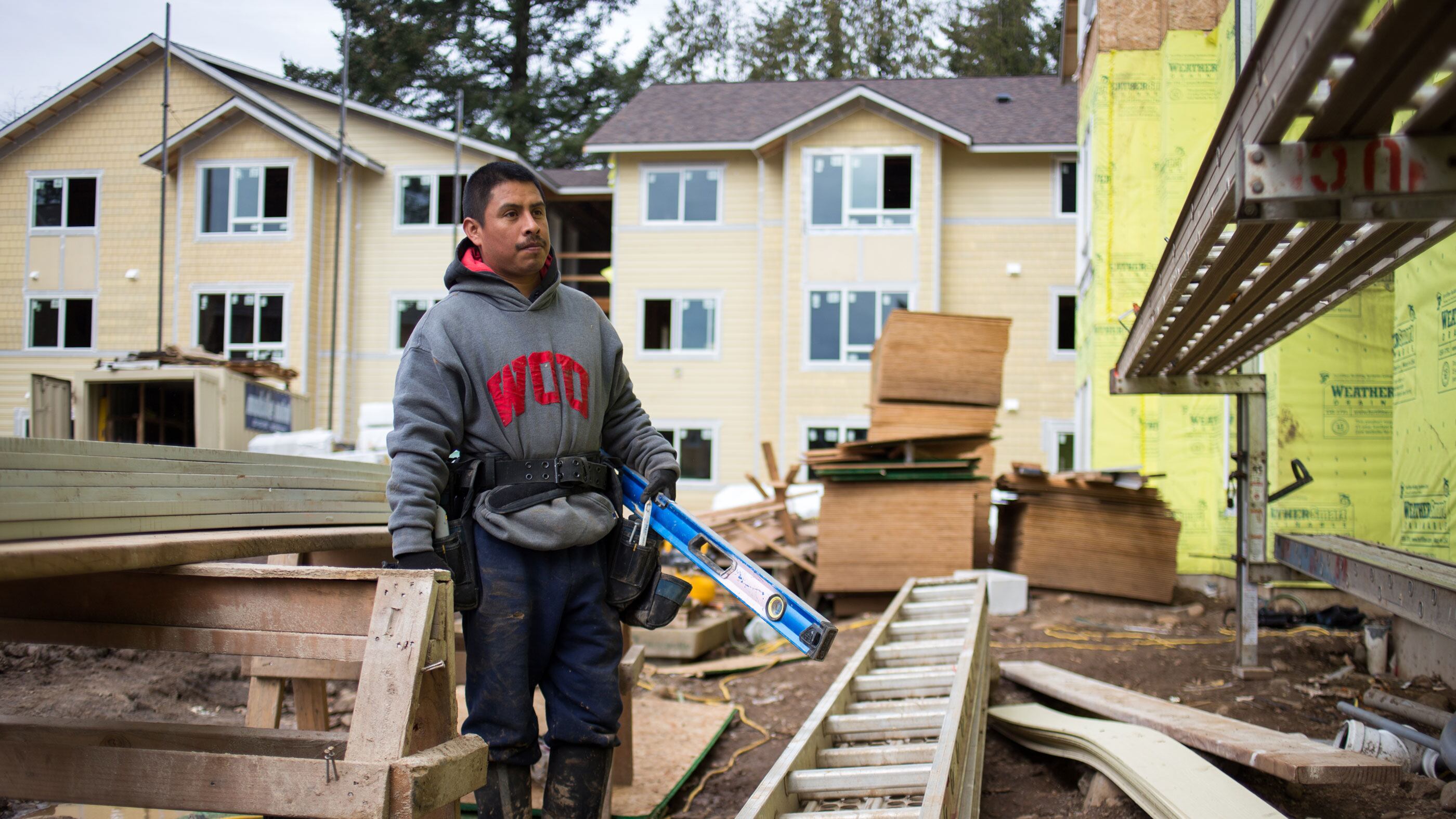Last fall, as Portland voters pondered whether to pass an affordable housing bond, incoming Mayor Ted Wheeler pledged to build low-income apartments faster and cheaper than in the past.
Now a developer has brought a proposal to the mayor to do just that—and was met with a month of silence.
Rob Justus of Home First Development is Portland's most vocal critic of the high cost of affordable housing. Justus, whose company has completed 200 units in East Portland and has projects underway in North Portland, Bend and Sisters, wants to build 300 apartments and sell them to the city for $100,000 apiece.
That's roughly half what the city projected it would spend per unit using the $258 million housing bond approved by voters in November.
Justus and his business partner outlined their proposal in a Feb. 13 email to Maurice Henderson, Wheeler's chief of staff, on which he copied the mayor. The proposal for the 300 apartments encompasses roughly 10 projects, with 375-square-foot units built close to public transportation.
The email came with a three-page slide show that listed in bullet points the benefits to the city: "Rapid development," "lower cost per unit, more units" and "reduced risk for the city."
"If we can build units at lower cost, you can create more units," Justus says. "We need to get as many units as possible."
After a month of silence, and an inquiry from WW, Wheeler's office replied to Justus on March 21 to request a meeting. The mayor's spokesman, Michael Cox, was noncommittal.
"Any proposal that promises more units at a lower cost should be treated with interest," Cox says. "It must also be evaluated alongside other good proposals."
Justus' idea tests Wheeler's promise to spend public housing dollars more efficiently, even as the mayor prepares this month to appoint a committee to oversee projects funded by the bond.
Related: Portland needs to build thousands of affordable apartments. Here's why it keeps coming up short.
Justus has floated a development idea to the city before. In 2015, he offered to build 1,000 units for former Mayor Charlie Hales at $85,000 per unit if the city could come up with a $20 million down payment. Hales went so far as to mention the idea in a State of the City address two years ago, but that idea, as with many others under Hales, fizzled without follow-through.
Justus, a for-profit developer, has in the past cut costs by building in less expensive parts of town, and reduces expenses by not paying union wages, or meeting energy-efficiency standards or taking large development fees. He says the lower construction costs would help make his latest buildings affordable to people earning less than $20,000 a year, with rents no higher than $500 a month.
That slice of the population—residents making 0 to 30 percent of area median income—is the most in need of affordable housing, and the people most likely to be on the streets.
"If we really want to see improvement in terms of homelessness, we have to focus our subsidies on very low incomes," says Ed Blackburn of housing nonprofit Central City Concern. Blackburn and Justus agree: That could mean cutting costs by building smaller units.

In the past decade, the city has paid up to $514 per square foot for government-subsidized apartments, in part because it chose projects in the central city that include social services managed by housing nonprofits ("Roofless," WW, Sept. 28, 2016).
Wheeler pledged that if voters passed a housing bond, he would get more apartments through public money.
But the first deal after the bond passed gave no indication the city was serious about reducing the cost of projects it finances.
In December, the Portland Housing Bureau agreed to spend $37 million in bond money to buy and restore the Ellington Apartments in Northeast Portland—a project that drew criticism from the bureau's former director.
A month after that deal, Wheeler halted any purchases using bond money so the city could set consistent standards for bond purchases.
The Housing Bureau has already asked the city attorney to evaluate what's known as a "turnkey" approach: having private developers build housing to city standards and selling it on completion.

And that's what Justus is offering: He'll build units without city subsidy, then sell the finished apartments to the Housing Bureau.
Justus' methods have drawn criticism. His proposed projects would be exempt from paying prevailing wages to unionized workers.
But that would not be unique in the world of affordable housing. A 32-unit, low-income housing project in Southeast Portland's Lents neighborhood built last year by housing nonprofit the Native American Youth and Family Center, funded in part by the Housing Bureau, was given an exemption from the prevailing wage standard.
Dave Carboneau, Justus' business partner, says Home First's offer lets the city focus exclusively on lowering the cost of building affordable apartments—in part so the city can make them available to those needing them most.
"The big push is to focus on people who are at risk of homelessness and are living in substandard environments," Carboneau says. "That's what we're doing."
Staff writer Nigel Jaquiss contributed reporting to this story.
